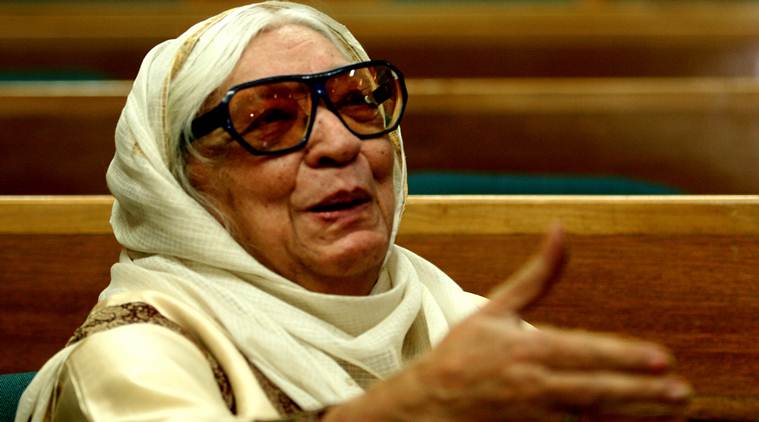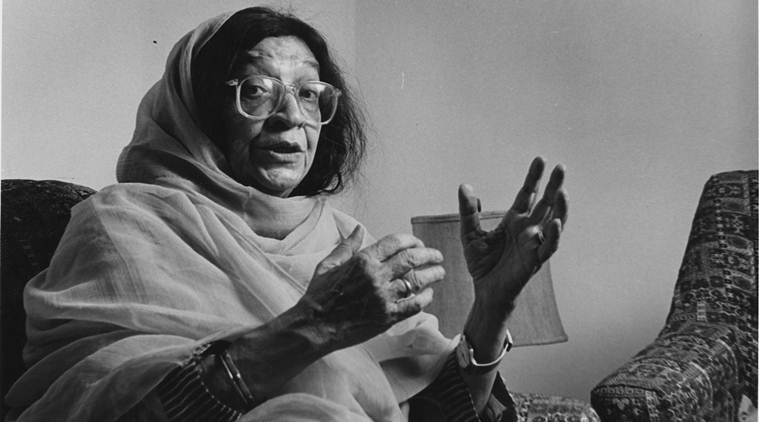By Express Web Desk |New Delhi |Updated: January 25, 2019 1:51:18 pm
Krishna Sobti: The Grande Dame of Hindi literature
Despite being known as a champion of female sexuality and identity - a regular theme in her novels - Krishna Sobti resisted being called a 'woman writer.'

Legendary Hindi writer Krishna Sobti passed away early Friday morning at the age of 93. Sobti, a Sahitya Akademi Award and Jnanpith award winner, started her literary journey with poetry, before switching to fiction.
Considered the Grande Dame of Hindi literature, her writings often created an uproar for being “obscene”. She is more popular for experimenting with new writing styles and creating “bold” and “daring” characters in her stories who were ready to accept all challenges. Sobti’s choice of subjects range from the India-Pakistan Partition, and relationships between man and woman, to the changing dynamics of Indian society and the gradual deterioration of human values.
Despite being known as a champion of female sexuality and identity – a regular theme in her novels – Sobti resisted being called a ‘woman writer.’ In an interview to The Indian Express, she said: “I don’t believe in ‘women’s literature’. Theorists might analyse texts in this narrow way, but, to me, great texts combine both masculine and feminine elements. A novel about women does not become less authentic merely because it was written by a man.”
Krishna Sobti’s novels
Zindaginama, considered one of her most acclaimed works, brought Sobti her Sahitya Akademi award – the first for any woman Hindi writer. A rambling narrative spanning across decades, it incorporates several dialects of Hindi, which makes it a unique literary text. Sobti wrote the first draft in her 20s, and even sent it for publication, but withdrew its copies, having found that the publisher had changed several words. She kept the manuscript with herself before its revised version was eventually published nearly three decades later.
Soon after Zindaginama was published, she got embroiled in a copyright case with Hindi writer Amrita Pritam. She filed a copyright case against Pritam, claiming that Pritam had violated her copyright through the use of a similar title for her work called Hardatt Ka Zindaginama. The litigation went on for 26 years and the judgment was ultimately delivered in favour of Pritam.

Sobti’s Mitro Marajani, published in 1966, was an unapologetic portrayal of a married woman’s sexuality and had stunned the Hindi world when it was released. In the book, a woman, married in a joint family of three brothers, asserts her sexuality and unabashedly scolds her husband for not fulfilling her sexual desires.










.png)











No hay comentarios:
Publicar un comentario